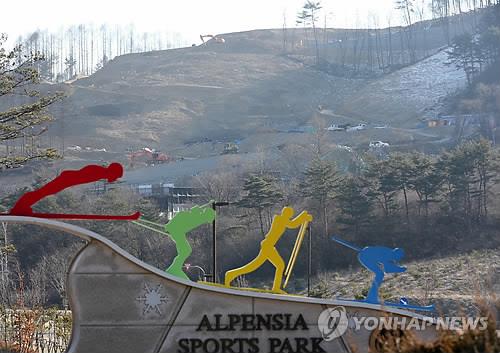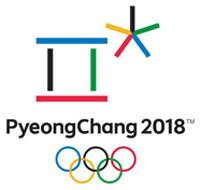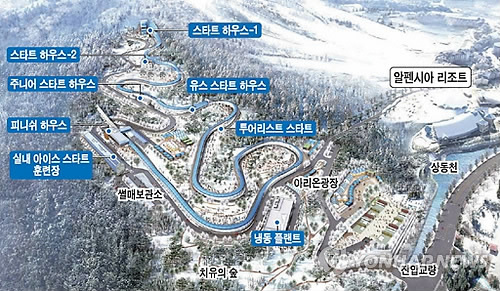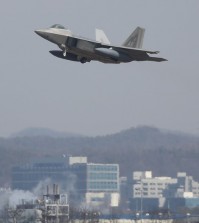- California Assembly OKs highest minimum wage in nation
- S. Korea unveils first graphic cigarette warnings
- US joins with South Korea, Japan in bid to deter North Korea
- LPGA golfer Chun In-gee finally back in action
- S. Korea won’t be top seed in final World Cup qualification round
- US men’s soccer misses 2nd straight Olympics
- US back on track in qualifying with 4-0 win over Guatemala
- High-intensity workout injuries spawn cottage industry
- CDC expands range of Zika mosquitoes into parts of Northeast
- Who knew? ‘The Walking Dead’ is helping families connect
S. Korea says logistics not sole reason to keep Olympics at home
SEOUL (Yonhap) — Despite recent changes to the Olympic hosting process that would allow multiple cities to jointly stage events, PyeongChang, the South Korean host of the 2018 Winter Olympics, maintains that it has no plans to share events with cities outside the country.
And officials of the local organizing committee say logistical headaches that may accompany co-hosting aren’t the only reason; they argue that the public sentiment has to be taken into consideration, too.
Earlier this week, the International Olympic Committee (IOC) unanimously approved the 40 recommendations put out by its president, Thomas Bach. Among these measures, dubbed “Olympic Agenda 2020,” is an option granted to the host city to stage some competitions in different countries to save costs.
Countries have been reluctant to jump into Olympic bidding races because of the rising price tag: the most recent Olympics, the 2014 Sochi Winter Games, reportedly cost US$51 billion. Cities such as Oslo and Stockholm have been scared away from bidding for the 2022 Winter Games and only Beijing and Almaty are in the running.
Bach has stated that it would take “exceptional cases” for a host city to hold events in a different country. But that didn’t prevent foreign media outlets, citing unnamed IOC officials and sources, from reporting that the IOC is urging PyeongChang organizers to halt their construction of a new sliding venue and move bobsleigh and luge competitions to another country to save costs.
In response, PyeongChang officials were up in arms and insisted the 2018 host has no plan to move events, sledding or otherwise, elsewhere.
Shin Mu-chol, head of the public relations bureau at the PyeongChang organizing committee, said while PyeongChang supports Bach’s reform measures overall, it will be “difficult” for PyeongChang to hold events elsewhere.
“The Olympic Agenda 2020 is a step in the right direction in that it will ease the burden on future Olympic hosts,” Shin said. “But with PyeongChang, sliding tracks are already under construction and it’s difficult to move sledding races to some other place at this point.”
Gunilla Lindberg, an IOC member who leads the IOC’s Coordination Commission for the PyeongChang Winter Games, told the Associated Press that there are a dozen bobsleigh and luge tracks that can host events for the 2018 Winter Olympics and it’s up to PyeongChang to decide whether to keep the competitions at home or to “take this great opportunity.”
To edge past Munich, Germany, and Annecy, France, for the right to host the 2018 Games, PyeongChang built its campaign on having a “compact” Olympics, with most of its venues clustered within 30 minutes from the main stadium. For PyeongChang to scrap the plan approximately three years from the Olympics and move events faraway would seem counterintuitive, a decision that goes against the very principle that helped PyeongChang win the Olympic bid in the first place.
Shin also said the mere suggestion of moving Olympic events outside PyeongChang has hit a nerve with the local residents.
PyeongChang won its Olympic bid on its third successive try in 2011. In 2003, it lost out to Vancouver in bidding for the 2010 Games and then four years later, fell to Sochi for the 2014 Olympics. In both occasions, PyeongChang had won the first round of the IOC election, but its failure to garner the majority forced an extra round of voting with the third candidate city with the fewest votes eliminated. Vancouver and Sochi both beat PyeongChang in the second round.
In all three bids, PyeongChang had strong backing from its residents, who got their wish as the first South Korean host of the Winter Olympics. Rival candidates, on the other hand, often had difficulty winning over the hearts of their people.
Shin said it might actually be less expensive to halt construction and hold sledding events in existing venues outside South Korea than to build a new venue here, but it’s not entirely about number crunching.
“I think the public sentiment is even more crucial here,” Shin said. “Their town has worked so hard to get the Olympics on their third try, and it’d be difficult for them to give it away to some other country. There may be 12 tracks available around the world, but wherever they may be located, it’s hard for these people (in PyeongChang) to concede their Olympics.”
Another official on the organizing committee, who asked for anonymity, said there will likely be additional costs to moving sledding events outside South Korea.
The Nagano Bobsleigh-Luge Park in Japan, also known as the Spiral, could be an option because of its proximity to South Korea. Nagano hosted the 1998 Winter Games and the Spiral was built in 1996. The PyeongChang official said remodeling may be required to prepare the venue for its second Olympics.
“Factoring in costs for construction of living quarters for athletes and for their transportation, among others, it will probably be more expensive (to hold sledding events outside South Korea than to have them at home),” the official added.
The official also explained that bringing in interpreters and volunteers to help run events in a foreign city could further complicate the Olympics.

The construction for the sliding center to be used for the 2018 Winter Olympics is underway in PyeongChang, South Korea, on Dec. 8, 2014. (Yonhap file photo)
PyeongChang officials suggested any drastic changes to the Olympic hosting should be implemented starting with the 2022 Winter Olympics, so as to give prospective host cities more time to prepare for potential co-staging of events.
Beijing of China and Almaty of Kazakhstan are vying for the 2022 Games, and the host will be determined next summer. One PyeongChang official said either of the cities could have sledding events in PyeongChang after the South Korean host has a successful Winter Games in 2018.
Shin, the public relations director, said the IOC hasn’t yet formally notified PyeongChang of any specific plan to relocate events. PyeongChang’s organizing committee will have a response ready when the IOC makes an official proposal, Shin added.
The IOC’s Coordination Commission on PyeongChang, led by Lindberg, is scheduled to hold its fourth meeting in the 2018 Olympic host city from March 17 to 19 next year.














![일본 사도광산 [서경덕 교수 제공. 재판매 및 DB 금지]](http://www.koreatimesus.com/wp-content/uploads/2024/07/PYH2024072610800050400_P4-copy-120x134.jpg)


